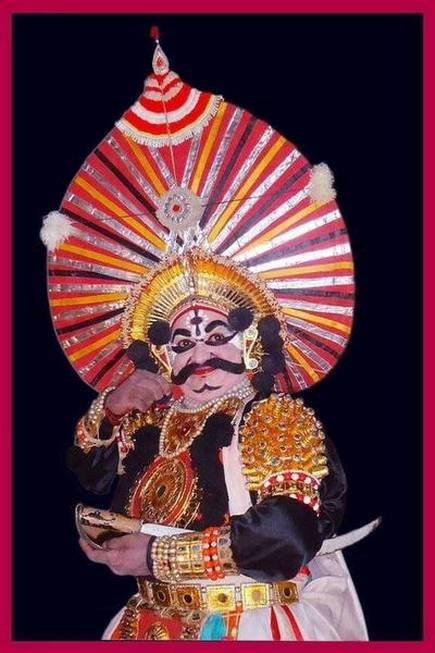Talamaddale | 16 Jun 2020
Why in News
The traditional art of ‘talamaddale’, a variant of Yakshagana theatre, has gone virtual in times of Covid-19.
Key Points
- In the conventional ‘talamaddale,’ the artists sit across in a place without any costumes and engage in testing their oratory skills based on the episode chosen.
- It has only spoken words without any dance or costumes. Hence it is Yakshagana minus dance, costumes and stage conventions.
- Yakshagaana, traditional theatre form of Karnataka, is based on mythological stories and Puranas.
- The most popular episodes are from the Mahabharata i.e. Draupadi swayamvar, Subhadra vivah, Abhimanyu vadh, Karna-Arjun yuddh and from Ramayana i.e. Rajyabhishek, Lav-Kush yuddh, Baali-Sugreeva yuddh and Panchavati.
- Gombeyatta puppet theatre closely follows Yakshagana.
- Other important forms of theatre in India:
- Nautanki (Uttar Pradesh) which often draws on romantic Persian literature for its themes,
- Tamasha (Maharashtra),
- Bhavai (Gujarat),
- Jatra (West Bengal),
- Koodiyaattam, one of the oldest traditional theatre forms of Kerala, is based on Sanskrit theatre traditions,
- Mudiyettu, traditional folk theatre form of Kerala,
- Bhaona, Assam,
- Maach, Madhya Pradesh,
- Bhand Pather, the traditional theatre form of Kashmir, etc.

